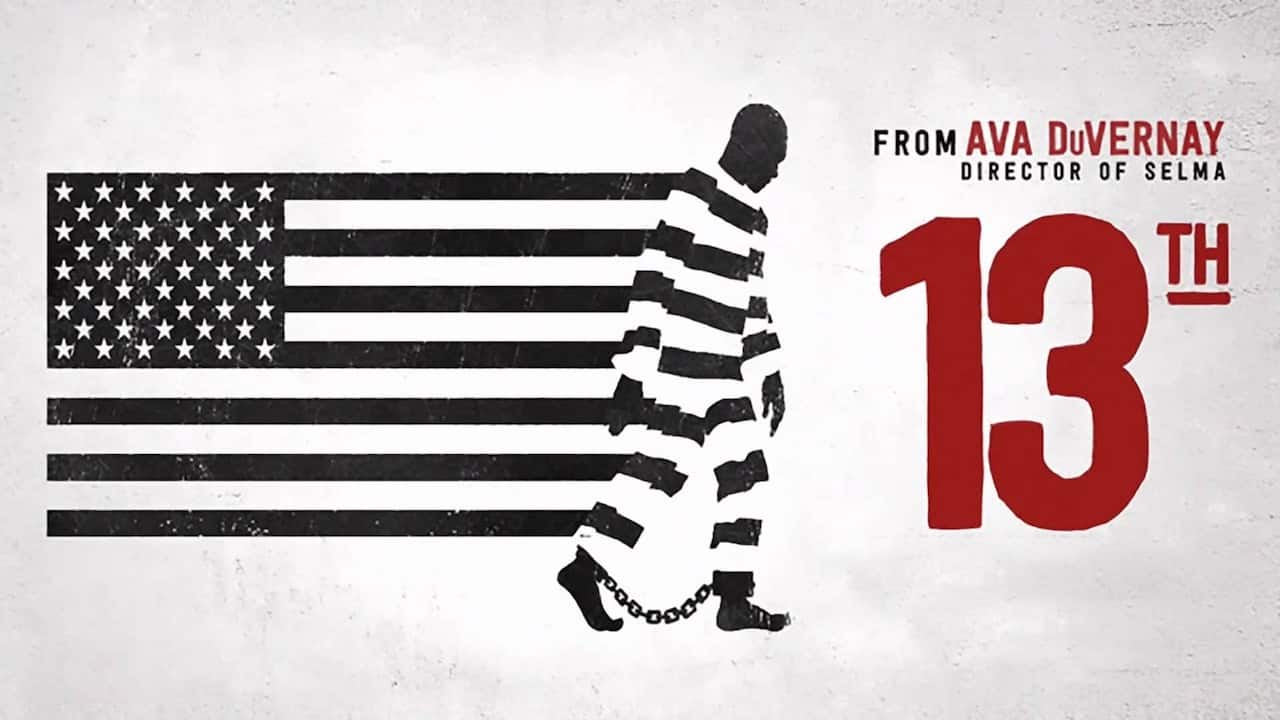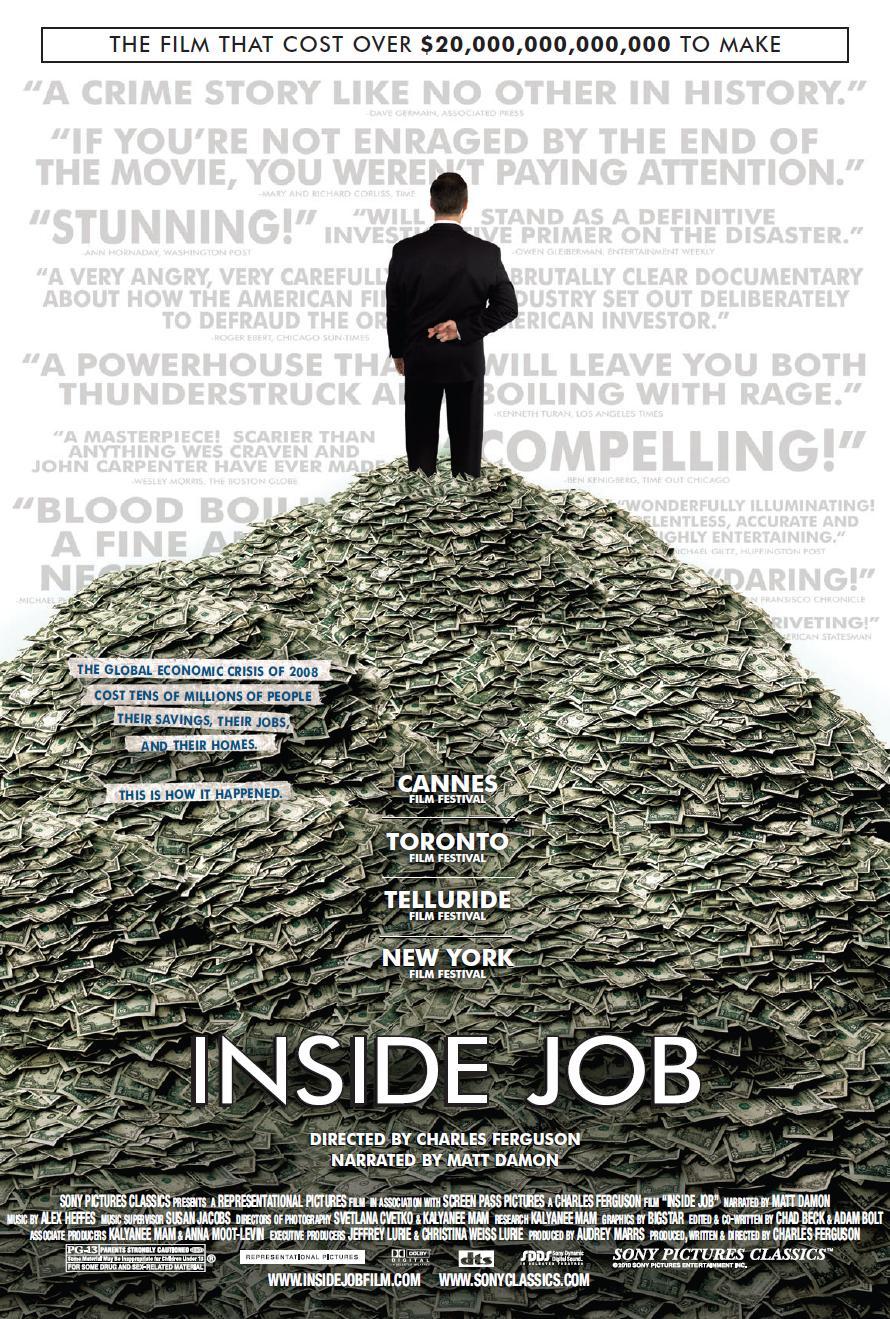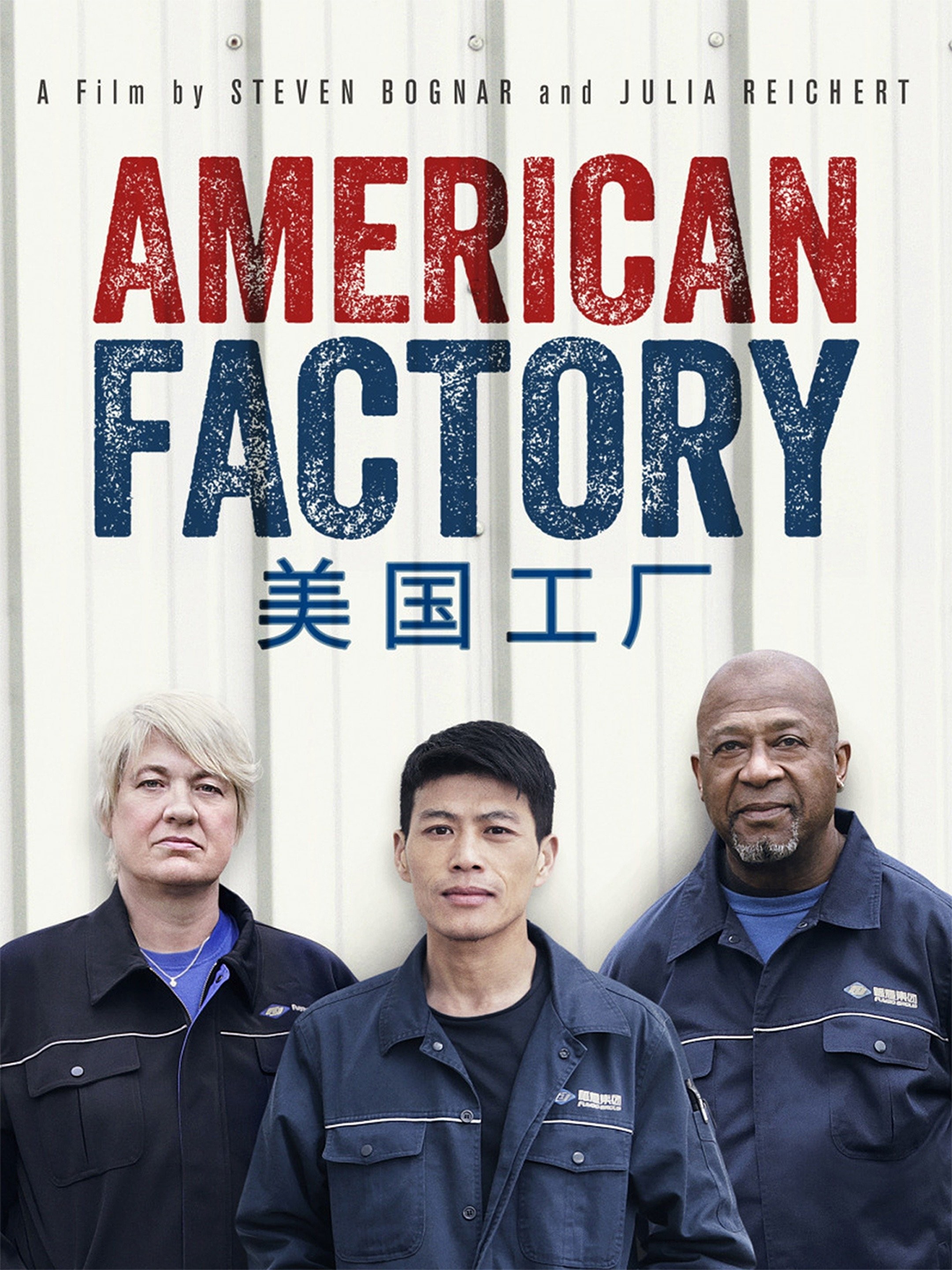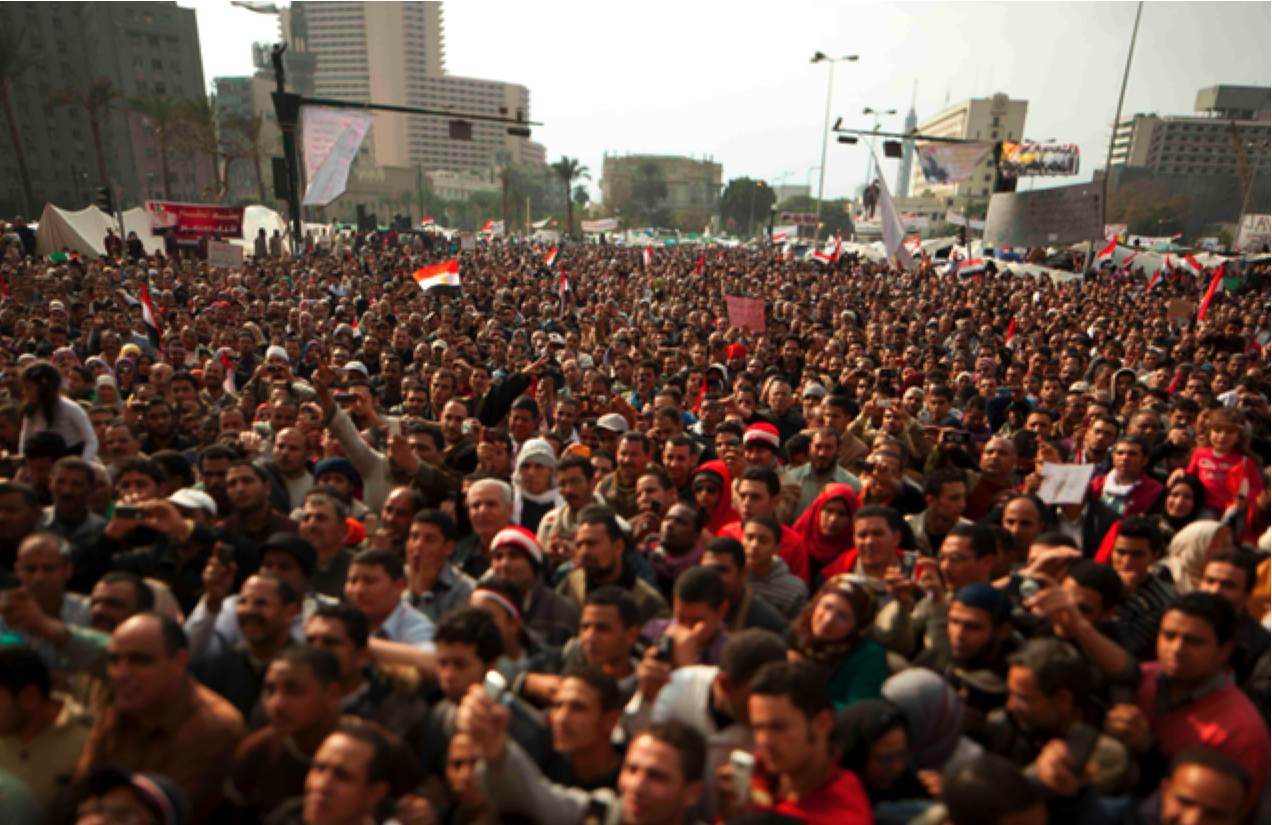The Best Political Documentaries
Political documentaries have become powerful tools for shedding light on societal issues, uncovering hidden truths, and provoking thoughtful discussions. In this article, we explore a selection of the best political documentaries that have left an indelible mark on viewers, offering compelling narratives and thought-provoking insights into the complexities of the political landscape.
Author:Maxwell CanvasReviewer:Caden SteelheartJan 31, 202425.3K Shares337.5K Views

Political documentarieshave become powerful tools for shedding light on societal issues, uncovering hidden truths, and provoking thoughtful discussions. In this article, we explore a selection of the best political documentaries that have left an indelible mark on viewers, offering compelling narratives and thought-provoking insights into the complexities of the political landscape.
13th (2016)
Ava DuVernay'simpactful and Oscar-nominated documentary, "13th," stands as a poignant examination of the enduring repercussions of the 13th amendment to the United States Constitution. While celebrated for officially abolishing slavery, the film adeptly reveals how this seemingly transformative amendment has inadvertently fueled the systemic and disproportionate incarceration of Black Americans.
The Paradox Of Liberation
The 13th amendment, ratified in 1865, marked a historic moment in American history by formally ending the institution of slavery. However, DuVernay's documentary skillfully navigates the paradox embedded in its language. The amendment states that "neither slavery nor involuntary servitude, except as a punishment for crime whereof the party shall have been duly convicted, shall exist within the United States."
The Documentary's Canvas
"13th" employs a compelling narrative canvas, weaving together interviews with prominent figures such as Angela Davis, Henry Louis Gates, and Charles Rangel. These voices provide a comprehensive analysis of how the aftermath of the Civil War reverberated through the corridors of power, ultimately shaping the policies of Richard Nixon and Ronald Reagan over a century later.
The Intersection Of History And Policy
The documentary meticulously traces the historical events and legislative decisions that led to the emergence of a criminal justice system profoundly biased against Black Americans. Through interviews and archival footage, "13th" unveils the interconnectedness of post-Civil War realities and the contemporary mass incarceration crisis.
The Nixon And Reagan Era
A significant portion of the documentary focuses on the pivotal role played by Richard Nixon and Ronald Reagan in exacerbating the issue. By delving into the political landscape of the 1960s and 1980s, "13th" sheds light on how the 'War on Drugs' and 'Law and Order' campaigns, seemingly unrelated to the 13th amendment, became instrumental in perpetuating racial disparities within the criminal justice system.
The Human Toll
DuVernay compellingly presents the human toll of these policies, illustrating how the disproportionate imprisonment of Black Americans perpetuates a cycle of systemic disadvantage. The film forces viewers to confront the harsh realities of a criminal justice system that, in practice, has replicated and institutionalized many of the injustices of the past.
A Call To Action
"13th" serves not only as an exposé of historical injustices but also as a call to action. It challenges viewers to critically examine the intersectionality of race, law, and policy. By presenting a compelling narrative grounded in facts and perspectives, the documentary encourages a broader conversation about the urgent need for criminal justice reform.
Inside Job (2010)
Charles Ferguson's compelling documentary, "Inside Job," serves as an illuminating exposé that delves deep into the intricate and alarming realities surrounding the 2008 global financial crisis. With a meticulous approach to research and candid interviews with key players, the film unravels the layers of corruption and conflicts of interest that permeated the financial sector. In its exploration, "Inside Job" provides a critical examination of the consequences stemming from unchecked corporate power, shedding light on the systemic failures that precipitated the economic collapse.
The Genesis Of Crisis
The documentary begins by meticulously tracing the roots of the financial crisis, offering a comprehensive timeline of events that culminated in the collapse of major financial institutions. By dissecting complex financial instruments and questionable practices, "Inside Job" makes a concerted effort to demystify the economic intricacies that often elude public understanding.
Corruption Unveiled
Ferguson doesn't shy away from exposing the pervasive corruption within the financial sector. Through thorough investigative journalism, the documentary unveils instances of regulatory capture, where industry insiders manipulated the very systems designed to keep them in check. The film highlights conflicts of interest that allowed Wall Street to operate with alarming autonomy, leading to decisions that prioritized short-term gains over long-term stability.
Systemic Failures And Unbridled Corporate Power
"Inside Job" skillfully dissects the systemic failures that paved the way for the crisis. The film scrutinizes the role of academic institutions, rating agencies, and regulatory bodies, showcasing how these entities became entangled in a web of influence that compromised their ability to act independently. By doing so, the documentary underscores the consequences of allowing corporate interests to dominate regulatory frameworks.
Key Players And Their Roles
Through interviews with economists, policymakers, and financial industry insiders, "Inside Job" presents a nuanced perspective on the crisis. The documentary doesn't merely assign blame but rather elucidates the interconnected roles of individuals and institutions, providing a comprehensive understanding of the collective failures that contributed to the economic downturn.
Lessons Learned And Unanswered Questions
As the documentary unfolds, it prompts viewers to reflect on the lessons learned from the 2008 financial crisis. It also raises crucial questions about the efficacy of subsequent regulatory reforms and the resilience of the financial sector to prevent a recurrence of such catastrophic events.
A Call For Accountability And Reform
"Inside Job" serves as more than a historical account; it is a call for accountability and reform. By exposing the insidious relationship between economic power and political influence, the documentary encourages viewers to question the ethical dimensions of financial practices and advocate for changes that prioritize the well-being of society over the interests of a select few.
American Factory (2019)
"American Factory" stands as a landmark documentary, unraveling the complex tapestry of factory-driven politics on a global scale over more than a decade. Released in 2019, the film ventures into the heart of post-industrial Ohio, where a factory emerges as a focal point for examining the dynamics of labor, culture clash, and international ownership. Owned and operated by a Chinese billionaire, this factory becomes a microcosm of the challenges and opportunities that arise in an interconnected world.
A Factory's Tale
The documentary meticulously chronicles the narrative of a factory's resurrection in a region grappling with the aftermath of deindustrialization. The once-abandoned manufacturing site becomes a symbol of hope for economic revitalization, showcasing the aspirations of both the local American workforce and the foreign investors steering the venture.
Global Perspectives, Local Realities
"American Factory" transcends geographical boundaries, providing a lens through which audiences witness the convergence of American and Chinese work cultures. The clash of expectations, communication challenges, and differing labor practices becomes a microcosm of broader global economic shifts, encapsulating the complexities of international business ventures in the 21st century.
Netflix Distribution And Obama Connection
Distributed by Netflix, "American Factory" reaches audiences far and wide, amplifying its impact and contributing to crucial conversations on a global scale. Notably, the film is produced by Higher Ground Productions, a burgeoning company owned by the Obama family. This connection adds a layer of significance, as the documentary aligns with the Obamas' commitment to storytelling that sparks dialogue on socially relevant issues.
Academy Award Recognition
The accolade of an Academy Award for Best Documentary solidifies the film's status as a cinematic triumph. Recognized for its distinctive style and exploration of themes deemed of great social importance, "American Factory" earns its place among the most revered documentaries of its time. The industry lauds its ability to weave a compelling narrative while addressing pressing socio-economic issues.
Themes Of Social Importance
At its core, "American Factory" grapples with issues that extend far beyond the walls of the factory it portrays. Themes of labor rights, economic globalization, and the human impact of industrial change take center stage. The documentary prompts viewers to reflect on the evolving nature of work, the role of unions, and the implications of foreign investment in local economies.
The Human Side Of Industry
Through intimate interviews and unfiltered glimpses into the lives of factory workers, the documentary humanizes the broader narrative. It captures the resilience, aspirations, and challenges faced by individuals navigating the shifting tides of the global economy. In doing so, "American Factory" bridges the gap between macro-level economic forces and the everyday experiences of those directly impacted.
The Square (2013)
"The Square" stands as a cinematic testament to the transformative power of collective action during the Arab Spring, a pivotal moment in Middle Eastern history. Directed by Jehane Noujaim, the documentary immerses viewers in the heart of the Egyptian Revolution, capturing the unfolding events through the lens of a group of impassioned activists occupying Cairo's iconic Tahrir Square.
The Arab Spring
The Arab Spring, a series of pro-democracy uprisings that swept through the Middle East in the early 2010s, marked a critical turning point in the region's history. "The Square" serves as a cinematic portal into the Egyptian chapter of this historical movement, delving into the fervor and determination of those who sought to bring about profound political change.
A Glimpse Into Tahrir Square
Noujaim offers an intimate portrayal of Tahrir Square, the epicenter of the Egyptian Revolution. The square becomes not only a physical space but a symbol of hope, resilience, and the unyielding spirit of a people longing for democracy and human rights. The documentary skillfully captures the essence of this communal space, where voices unite in a collective call for change.
Courage Against Oppression
"The Square" unfolds as a poignant narrative of courage in the face of oppression. Through the lens of the activists, viewers witness the challenges, sacrifices, and unwavering determination that define their struggle. The documentary sheds light on the personal stories behind the headlines, humanizing the revolutionaries who risked everything for the ideals of democracy and freedom.
Directorial Insight
Jehane Noujaim's direction lends a distinctive perspective to the narrative. By seamlessly blending on-the-ground footage with interviews and personal accounts, the director provides viewers with an immersive experience, capturing both the intensity of the protests and the emotional depth of the individuals at the forefront of the movement.
Democracy And Human Rights As Driving Forces
At the core of "The Square" lies a powerful exploration of the universal ideals of democracy and human rights. The documentary transcends geopolitical boundaries, resonating with audiences worldwide as it portrays the universal yearning for justice and self-determination. The film becomes a mirror reflecting the enduring human spirit in the face of systemic challenges.
The Complexity Of Revolution
Noujaim doesn't shy away from portraying the complexities inherent in any revolutionary struggle. "The Square" navigates the internal conflicts, differing ideologies, and external pressures that shape the trajectory of the movement. It presents a nuanced perspective on the challenges of sustaining a collective vision amidst the turbulence of political upheaval.
Legacy And Ongoing Struggle
"The Square" captures a moment in time, but its resonance extends beyond the events it documents. As the Arab Spring ripples through history, the documentary prompts reflection on the ongoing struggle for democracy in the region and the broader implications of collective movements in shaping the destinies of nations.
Political Documentaries - People Also Ask
What Is The Difference Between Docuseries And Documentary?
The main difference between a docuseries and a documentary lies in their format and structure:
Documentary:
- Format:A documentary is a standalone film or video production that typically ranges in length from short films to feature-length productions.
- Structure:It presents a comprehensive exploration of a specific topic, theme, or event. Documentaries often follow a linear narrative, providing an in-depth and cohesive examination of the subject matter.
- Purpose:Documentaries are designed to educate, inform, and provide a deep understanding of a particular subject. They can cover a wide range of topics, including social issues, historical events, biographies, or environmental concerns.
Docuseries:
- Format:A docuseries, short for documentary series, is a collection of multiple episodes, often organized in a series format. Each episode contributes to the overall exploration of a broader theme or topic.
- Structure:Docuseries are episodic in nature, with each episode functioning as a standalone unit while contributing to the overarching narrative of the entire series.
- Purpose:Docuseries allow for a more in-depth and nuanced exploration of a subject by spreading the content across multiple episodes. This format is particularly effective for covering complex or multifaceted topics that require a more extended treatment.
Why Are Documentaries Used In Campaigns?
Documentaries are often used in political campaigns for several reasons:
- Informing Voters:Documentaries provide a platform for candidates to communicate their policy positions, values, and personal stories directly to voters. This can help voters gain a deeper understanding of a candidate's background and priorities.
- Building Connections:Documentaries can humanize political figures by showcasing their personal lives, challenges they've overcome, and their journey in public service. This can help candidates connect with voters on a more personal level.
- Educating on Issues:Documentaries can delve into complex policy issues, presenting them in a more accessible and engaging format. This helps candidates articulate their positions on key topics and educates voters on the challenges and solutions they propose.
- Creating a Narrative:Documentaries allow campaigns to craft a narrative around a candidate or a specific issue. By controlling the storytelling, campaigns can shape public perception and influence the political discourse.
- Reaching Diverse Audiences:Documentaries can be distributed through various channels, reaching audiences beyond traditional campaign events and debates. Online platforms and streaming services provide opportunities to connect with diverse demographics.
Where Can I Watch Documentaries?
Documentaries are available on various platforms, including streaming services, television networks, and online video platforms. Some popular platforms for watching documentaries include:
- Streaming Services:Platforms like Netflix, Hulu, Amazon Prime Video, and Disney+ offer a wide selection of documentaries across different genres.
- Documentary-specific Platforms:Websites like Documentary Heaven, DocuBay, and CuriosityStream specialize in providing a curated collection of documentaries.
- Television Networks:Documentary channels such as National Geographic, PBS, HBO, and BBC often air documentaries on television.
- Online Video Platforms:YouTube and Vimeo host a plethora of documentaries, including independent films and shorter documentary content.
Conclusion
Political documentaries serve as crucial vehicles for understanding and engaging with the complex issues that shape our world. The documentaries highlighted here, through their compelling narratives and thought-provoking content, exemplify the transformative power of film in fostering awareness, sparking dialogue, and inspiring change. As we continue to navigate the intricacies of the political landscape, these documentaries remain essential viewing for those seeking a deeper understanding of the forces that shape our societies.

Maxwell Canvas
Author
Maxwell Canvas, a charismatic and fearless crypto evangelist, defies conventions and blazes a trail in the realm of digital currencies. With his unique physique serving as a symbol of resilience, he challenges societal norms and proves that true expertise transcends appearances. Against a backdrop of a blurred and ever-shifting market, Maxwell's work becomes a masterpiece, painting a vivid picture of knowledge and inspiration.
With unwavering passion, Maxwell empowers others to embrace the transformative potential of blockchain technology. His captivating presence and unyielding dedication captivate audiences, turning skepticism into curiosity and igniting a spark of interest in the world of cryptocurrencies. Maxwell Canvas stands as a visionary force, leaving an indelible mark on the crypto landscape, inspiring others to explore decentralized possibilities and embrace a future of innovation and financial empowerment.

Caden Steelheart
Reviewer
Caden Steelheart, an enigmatic author, weaves tales that immerse readers in the depths of sin city's underbelly. With his words as a weapon, he crafts literary masterpieces that reflect the dark and dangerous spirit of the city. Caden's writing captures the gritty essence of sin city, delving into the intricacies of its characters and the moral complexities that define their existence.
Born amidst the shadows, Caden draws inspiration from the relentless chaos and unforgiving nature of the city. His words carry the weight of experience, creating a vivid and haunting portrayal of sin city's undercurrents. Through his stories, he explores the blurred lines between right and wrong, exploring themes of power, deception, and redemption.
Caden Steelheart's literary prowess has made him a name whispered in literary circles, captivating readers with his ability to immerse them in sin city's intricately woven tapestry. With each written word, he invites readers to journey into the darker realms of the human experience, offering them a glimpse into the secrets and sins that shape the city's inhabitants. Caden Steelheart, a master of capturing the essence of sin city through his writing, continues to captivate audiences with his haunting and evocative narratives.
Latest Articles
Popular Articles



